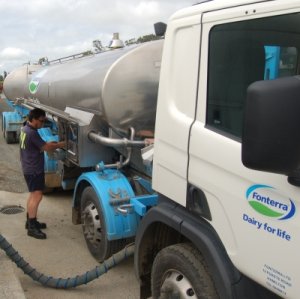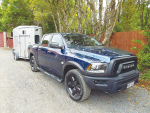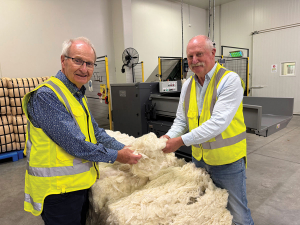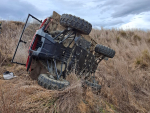New Zealand trucking operators are paying more than double the amount in road taxes for some heavy vehicles compared to their Australian counterparts and that has a direct impact on freight costs for farmers, says Road Transport Forum chief executive officer Ken Shirley.
"This is bad news for farmers as road freight costs make up around 11% of total farm costs for beef and cattle farmers according to Lincoln University's Agribusiness and Economics Research Unit," he says. "That's well over half a billion dollars a year. For dairy farmers road freight makes up nearly 9% of farm expenses and around 2% of costs for kiwifruit farmers.
"Back in 2008 a special study for the Forum found that road freight costs in New Zealand were on average 30% higher than in Australia. The main causes were higher road charges here and the fact that Australian trucks could carry significantly higher payloads.
"Now that New Zealand has a new Road User Charges regime, the Forum decided to again compare the road taxes paid by operators in both countries and the result is no better for customers of New Zealand trucking companies."
Australian configurations that matched some of the most popular New Zealand heavy vehicle combinations were used for the comparison with one exception. The nearest Australian configuration to a New Zealand five-axle B train and 6x4 tractor is a seven-axle Australian B double four-axle B train with a 6x4 tractor so that was used.
The closest costs are for six-axle B trains with 6x4 tractors with a 2.6% margin in favour of the Australian vehicle, but from there the cost differential widens. A New Zealand five-axle B train and 6x4 tractor pays 20% more, a quad-axle semitrailer and 8x4 tractor pay 64% more, a tri-axle semitrailer and 6x4 trailer have a 71% cost differential and for an 8x4 truck towing a trailer with three or more axles the cost differential is a massive 102%.
Shirley says the Forum's findings mean that farmers as well as local businesses should be pressuring their local councils to free up more roads for use by High Productivity Motor Vehicles (HPMVs).
"A major reason why Australian road freight rates are so much lower than here is that until recently Australian trucks could carry a lot more than New Zealand trucks. HPMVs can cut the difference in payloads and lift vehicle productivity by over 20%. It's the only realistic way right now to make New Zealand road freight rates more competitive with those in Australia and that's important for all exporters not just farmers.
"Councils are understandably concerned about the possible impact of heavier vehicles on their roads, but the cause of road wear is the weight on each axle not the overall vehicle mass and HPMV axle loadings are no higher than for standard heavy vehicles. There may be some issues with bridge weight limits which are determined by total mass, but the Forum believes that the economic return for a region from more productive trucks will pay off in the long run."



















